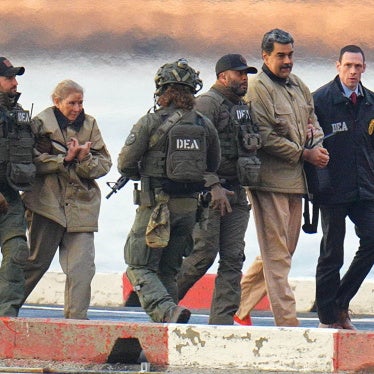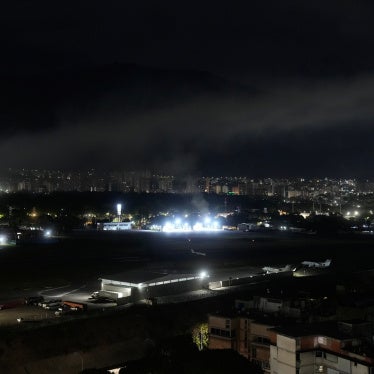(New York) – Venezuela should conduct prompt, thorough, and impartial investigations into the deaths of 35 inmates in the David Viloria Prison (known as Uribana prison), in Lara state, Human Rights Watch said today. The government should overhaul its penitentiary system to improve prison conditions and address violence within prisons.
On November 24, 2014, inmates at the Uribana prison went on a hunger strike over prison conditions and mistreatment of prisoners and their family members. A group of inmates reportedly took control of the institution’s medical facilities during the protest and, according to official sources, 35 inmates died and 145 became ill from drinking alcohol and ingesting drugs stolen from the prison pharmacy. Twenty are in a coma, officials said. However, the Venezuelan Prison Observatory, a local nongovernmental organization, reported that family members said many inmates were allegedly poisoned by food and water prison guards gave them during the protest.
“Thousands of inmates have died in Venezuelan prisons in recent years, including dozens in the Uribana prison since 2013,” said José Miguel Vivanco, Americas director at Human Rights Watch. “How many more need to die for the government of Venezuela to effectively address the crisis in its penitentiary system.”
In 2011, then-President Hugo Chávez created the Penitentiary Affairs Ministry to improve prison conditions, which he described as a “very big” problem.
In January 2013, according to official reports, at least 56 prisoners and one member of the National Guard were killed during a clash between members of the National Guard and inmates of the Uribana prison. Forty-six prisoners were hospitalized with serious injuries. In 2007, the Inter American Court of Human Rights had ordered Venezuela to adopt precautionary measures to “prevent loss of life and harm to the physical, mental, and moral integrity of all persons deprived of liberty in the Uribana Prison, all persons who might be interned in this penitentiary center in the future, those who work there, and all visitors.” The court’s order remains in force.
In November 2014, after reviewing Venezuela’s compliance with the Convention Against Torture, the UN Committee Against Torture expressed concern over a disparity between official and unofficial statistics about prison overcrowding. They cited concerns over violence and poor conditions, including a lack of adequate medical treatment, food, water, and ventilation.
The Committee Against Torture “expressed alarm in light of reports that describe high levels of violence in penitentiary centers, which registered that 4,791 people died and 9,931 were injured [in Venezuelan prisons] since January 2004,” including 140 deaths in 2014. At least 1,400 people have died in prisons since the Penitentiary Affairs Ministry was created, according to the Venezuelan Prison Observatory.
Impunity for violations of prisoners’ rights is the norm in Venezuela, Human Rights Watch said. As of November, authorities were still investigating the “high number” of violent clashes registered in Venezuelan prisons in recent years, according to the Committee Against Torture.
On November 27, the Attorney General’s Office created a “multidisciplinary group” to investigate the “irregular situation” in the Uribana prison, and appointed three prosecutors to work on the case. The prison director was reportedly detained during the investigation.
“In addition to thoroughly investigating this case, the government of Venezuela should accept the outstanding request by the UN special rapporteur against torture to visit Venezuela and grant him full access to conduct an independent investigation of prison conditions in the country,” Vivanco said.








